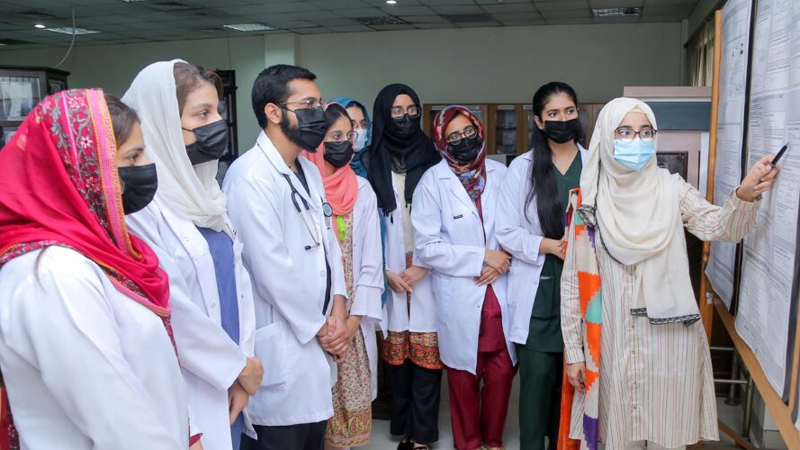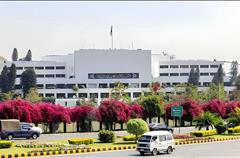The government of Pakistan has introduced new regulations to cap annual tuition fees at private medical and dental colleges, aiming to make medical education more affordable for students. This policy was approved by a special committee on medical education, led by Deputy Prime Minister Ishaq Dar.

Key Highlights of the New Tuition Fee Cap Policy
-
Fee Cap Range: Private medical colleges cannot charge more than Rs1.8 million to Rs2.5 million per year.
-
Regulation Oversight: The Pakistan Medical and Dental Council (PMDC) will monitor and enforce compliance.
-
Inflation Adjustments: Institutions already charging fees lower than the cap can only increase fees based on the Consumer Price Index (CPI).
-
Impact on Existing Fees: The decision prevents institutions from imposing excessive tuition hikes, as some colleges previously charged up to Rs3.5 million annually.
-
Inclusivity: The cap applies to all private medical colleges, including Aga Khan University.
Purpose and Objectives
The government aims to:
-
Ensure Affordability: Prevent financial exploitation of medical students.
-
Promote Fairness: Standardize tuition fees across private medical institutions.
-
Enhance Healthcare Quality: Encourage structured and transparent policies to improve the medical sector.
Breakdown of Fee Cap Structure
| Category | Minimum Fee Cap (Rs) | Maximum Fee Cap (Rs) |
|---|---|---|
| Annual Tuition Fee (Private Colleges) | 1.8 million | 2.5 million |
| Previously Charged Fees (Before Cap) | Up to 3.5 million | N/A |
| CPI-Based Annual Adjustment | Applicable | Applicable |
Government’s Commitment to Education
Deputy Prime Minister Ishaq Dar has emphasized that this policy will bring relief to students and improve the quality of medical education in Pakistan. He reiterated the government’s commitment to ensuring fair practices in tuition regulations and educational standards.
Role of PMDC in Monitoring
The Pakistan Medical and Dental Council (PMDC) will:
-
Ensure Compliance: Monitor colleges for adherence to the fee cap.
-
Regulate Annual Adjustments: Allow only CPI-based increases.
-
Take Action Against Violations: Impose penalties on institutions overcharging students.
Impact on Students and Medical Colleges
For Students:
-
Reduced financial burden
-
Increased accessibility to medical education
-
Prevention of sudden tuition hikes
-
Improved educational quality due to better regulations
For Private Medical Colleges:
-
Standardized fee structures
-
Clear guidelines for fee adjustments
-
Encouragement to maintain quality education under controlled costs
Comparison: Previous vs. New Fee Regulations
| Aspect | Before Regulation | After Regulation |
| Annual Tuition Fee (Max) | Rs3.5 million | Rs2.5 million |
| Government Oversight | Limited | Stronger (PMDC) |
| Annual Fee Hikes | Arbitrary | CPI-based |
| Impact on Students | Financial Burden | More Affordable |
Future Prospects
The implementation of this policy is expected to:
-
Discourage unregulated tuition hikes in private medical colleges.
-
Encourage transparent fee structures across all institutions.
-
Strengthen Pakistan’s healthcare education system by ensuring that financial constraints do not hinder aspiring medical students.
Explore Educational News
Related News

Punjab Increases Registration Fee for Matric









.gif)










1.jpg)
















